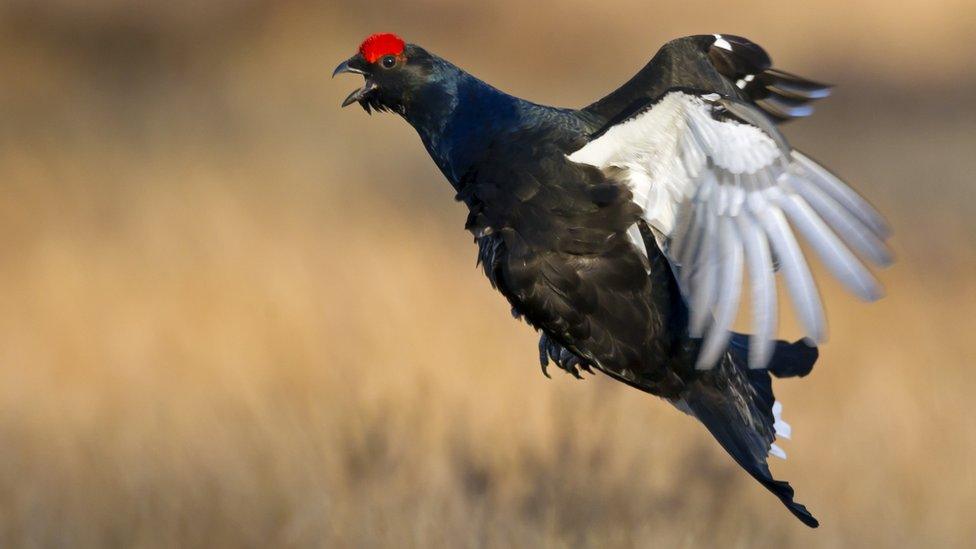Study aims to aid south of Scotland's black grouse
- Published

Black grouse numbers have fallen sharply in the area in recent years
A new survey hopes to help protect dwindling numbers of black grouse across the Southern Uplands.
The study will monitor lekking sites where male birds strut and display their feathers during their annual courting rituals.
The information will then be used to help keep wind farms and new forest planting away from those areas.
In 2011, it was estimated there were 382 male birds in south east Scotland but by 2018 that had fallen to just 78.
Black grouse were once widespread in Britain but have declined rapidly in recent years and are now on the International Union for the Conservation of Nature's "red list" of threatened species., external
The survey work is being carried out by the Southern Uplands Partnership (SUP) with support from the Fallago Environment Fund (FEF), Scottish Forestry, NatureScot and Scottish Borders Council.
Populations of the bird in the area are said to be "extremely vulnerable"
It will enable the mapping of lekking sites so that future developments can be encouraged to avoid them.
The Southern Uplands stretch from coast to coast with a walking route across them running from Portpatrick in Dumfries and Galloway to Cockburnspath in the Borders., external
Pip Tabor, partnership manager with SUP, said: "The lekking rituals of this charismatic upland species are one of nature's great spectacles, however, black grouse populations in the south of Scotland remain extremely vulnerable.
"The funding for this new survey will enable us to ensure that new plantations take key black grouse habitat into consideration and ensure that we don't see further erosion of this important species."
FEF chairman Gareth Baird said it would be a "tragedy" if numbers were to fall further and said his organisation was delighted to support the survey.